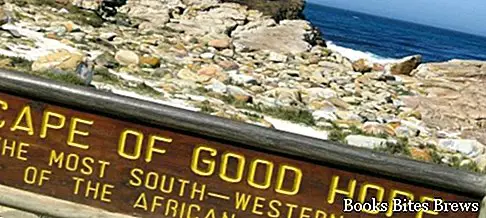The oldest human fossil remains have been found in the history of Africa, a continent considered by many to be the center of spread of humanity on earth.
Africa history summary
Even the oldest artifacts attributable to human ancestors were found in Olduvai, Tanzania, in Africa, and the Sahara, then fertile, was home to thriving prehistoric civilizations.
While the desertification of the Sahara isolated central-southern Africa from northern and Mediterranean Africa, Egyptian civilization developed and relations with the Middle East, foundation of the Phoenician colonies in the first millennium BC, and with Europe , Greek colonization from the seventh century BC.
The Arab conquest, which took place between 640 and 708 AD, led to the Islamization of northern Africa and the formation of strong Arab-Berber states, including Morocco, Algeria, Tunisia, Cyrenaica, Tripolitania and Egypt.
Christianity, of Coptic confession, survived in Ethiopia and in restricted areas of Egypt.
Between the tenth and nineteenth centuries, in sub-Saharan Africa, in contact with Arab infiltrations, the peoples of the Sudanese group created important state formations in the western regions based on caravan trade, including the Ghana empire, the Mandingo empire of Mali, kingdoms of Songhai, Kanem Bornu, Haussa and Fulbe.
In the Bantu area, the kingdoms of Manikongo, on the Congo River, and of Monomotapa, today Zimbabwe, emerged, and in the nineteenth century that of the Zulu.
Arab, Persian and Indonesian influence was felt on the eastern coasts.
Starting from the 15th century, the Portuguese and Spanish began to penetrate Europe, initially limited to stopovers and commercial emporiums on the coasts along the route to the Indies and then engaged in the slave trade.
In the 17th century, the Boers, Dutch settlers, settled in the Cape of Good Hope region.
The exploration activity, constantly followed by a work of colonization and exploitation of raw materials, intensified in the nineteenth century and, in 1885, the Berlin conference sanctioned the partition of whole Africa among the great European powers or Great Britain, France, Germany, Belgium and Italy.
Recommended readings- History Egypt in brief
- Physical geography Africa
- 7-day itinerary in Morocco: 18 unforgettable places
- Nuweiba: what to see between the Gulf of Aqaba and Sinai
- Andrafiabe: the most beautiful cave in Madagascar
After the end of the Second World War, a movement for emancipation and full independence began in the African colonies and protectorates, which in 20-30 years led to the complete decolonization of the continent, even if in some cases by paying the price of long wars and bloody, like those of Algeria, Mozambique and Angola.
The dramatic problem of dependence on advanced countries eradicated from colonialism and of a permanent economic backwardness, to which ethnic conflicts and fragility of state structures often overlap, makes contemporary Africa a continent of profound instability and political conflict.
The economic and political organizations between the various states try to remedy these, the most important of which is the Organization of African Unity, in short OUA, which in 1991 brought together 50 countries.




